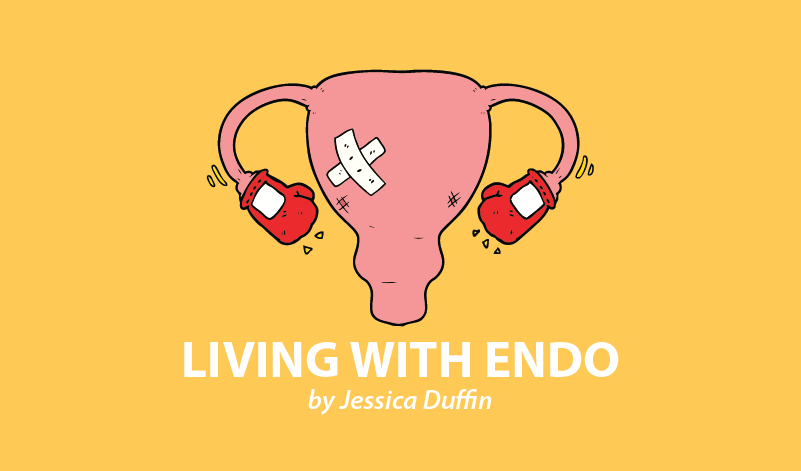I’ve embarked on a lot of therapy in my 29 (soon to be 30) years. I’ve had counseling, cognitive behavioral therapy, psychotherapy and soon I’ll be trying out rapid transformational therapy, which is a form of hypnotherapy.
I think therapy can be misunderstood sometimes. Some of us (including myself) go into it thinking it’s going to cure us. And while it can allow us to get over and release huge or small traumas in our lives, if we’re living with a chronic illness, or long-term issues like eating disorders, anxiety or depression, we might need to revisit therapy across the years. Therapy can help us manage those issues better and can help us through a particularly difficult patch, but we may face these issues again in a different form later down the line. So, we might need to seek the support of a therapist to help us if or when the time comes.
Therapy can be an amazing tool for living with endometriosis. It could help you cope better with living with chronic pain, or help you come to terms with your diagnosis. It could see you through a period of depression or anxiety that’s come along because of endometriosis. Or it could help you and others talk through the difficulties that have arisen in your relationships because of the struggles of endometriosis.
In the west, we mainly use cognitive behavioral therapy (CBT). This is because it has a high success rate, and often we can see changes in our behavior quite quickly. In the U.K., it is now the main, and in most cases the only, form of therapy available for free. Other types of therapy, while useful and, I believe, necessary for certain cases, take much longer and therefore are more costly to the NHS and have less impact in a short amount of time, in comparison.
I want to discuss the forms of therapy that I’ve experienced and share what I have learned from them. Of course, always consult with a professional before seeking treatment, as these are my experiences only.
Having said that, I know how it feels to be desperate when it comes to coping with endometriosis, and from my understanding in the U.K. (though this may be different in America and other countries), CBT is much more accessible and affordable than other forms, so it could be a good option if you need help quickly.
There is often a long waiting list if you go via the NHS. When I have begun receiving treatment with CBT, I’ve felt the difference almost immediately. To quote Mind.org: “CBT is a type of talking treatment that focuses on how your thoughts, beliefs and attitudes affect your feelings and behavior, and teaches you coping skills for dealing with different problems.
“It combines cognitive therapy (examining the things you think) and behavior therapy (examining the things you do).
“In CBT, you work with a therapist to identify and challenge any negative thinking patterns and behavior which may be causing you difficulties. In turn this can change the way you feel about situations, and enable you to change your behavior in future.”
In my experience, CBT helped me to see that a lot of my thinking and behaviors are often illogical and based on old fear patterns or learned behavior from very specific experiences. These patterns no longer work in my current situation. Realizing this has always felt hugely freeing. Seeing the reality is like having someone lift a curtain across my life, taking away the chains, coming to a wonderful epiphany that I don’t actually have to live this way.
Another reason why I think CBT is beneficial for endometriosis is because it has been shown to work well for chronic pain and chronic fatigue. Similar to mindfulness, CBT can help you perceive pain differently and also change the way you think and behave when it comes to coping with pain and fatigue, actually changing your experience of these two endometriosis symptoms.
Because of this, I believe CBT is often a good way to get started if you’re in a heavy place mentally. It helps lift you quickly, and begin working on changes sooner. Once you feel stronger, and if you feel that you need more intensive therapy, you could then explore the options of something like psychotherapy.
Cognitive behavioral therapy may not be for everyone. I believe I have deeper work to do than this form of therapy allows. But there’s no denying it: CBT has seen me through some of the darkest days of my life and illness so far.
***
Note: Endometriosis News is strictly a news and information website about the disease. It does not provide medical advice, diagnosis, or treatment. This content is not intended to be a substitute for professional medical advice, diagnosis, or treatment. Always seek the advice of your physician or other qualified health provider with any questions you may have regarding a medical condition. Never disregard professional medical advice or delay in seeking it because of something you have read on this website. The opinions expressed in this column are not those of Endometriosis News or its parent company, BioNews Services, and are intended to spark discussion about issues pertaining to endometriosis.


